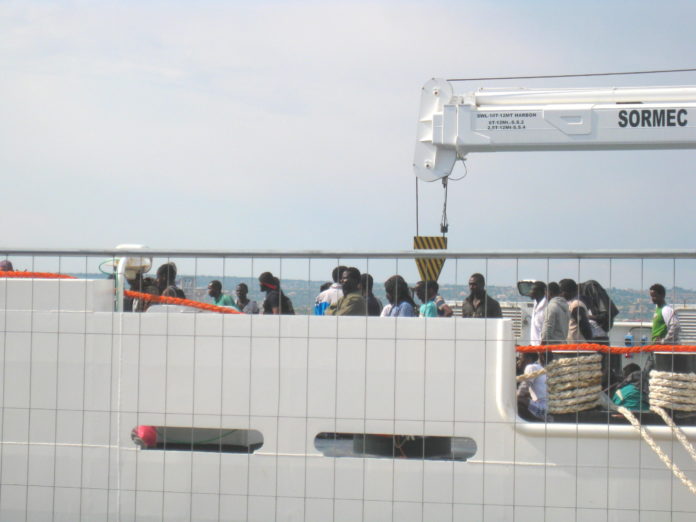
Rome (NEV), 16 March 2017 – On Saturday, March 4, at the Giorgio Prodi Hall of the University of Bologna, took place the meeting on the reformation of the EU Dublin Regulation promoted by MEP Elly Schlein. In view of the parliamentary debate that began on Thursday 9 March in Brussels, the Socialists & Democrats Group opened the debate with civil society, presenting the amendments draft that MEP Cecilia Wikström, rapporteur of the Reformation for the European Parliament proposed to the European Commission.
Together with the representatives of the major Italian organizations dealing with global migration – among others UNHCR, Amnesty International, Save the Children and Doctors Without Borders – was also present Giulia Gori of Mediterranean Hope – the Federation of Protestant Churches’ project on migration – who just a day before was in Brussels as part of the European Migration Forum.
Giulia Gori explained FCEI’s point of view concerning the so-called ‘Dublin system’: “For us whoever passes the EU’s borders does not enter in a specific Country, but enters in Europe and therefore solidarity must be European. On two points, the reform can not yield to compromise: the definition of ‘safe third country’ (not, for example, Sudan and Turkey) and the cancellation of rules which discourage the ‘secondary movement’ (i.e.: an asylum seeker in Italy cannot be deprived of his/her rights when moving to another European country).
On the sidelines and on the same wavelength, the promoter of the day expressed herself: “What we want – said Schlein to the reporters of the National TV channel – is to overcome the original hypocrisy which puts the entire burden on the States at the ‘hot borders’ of the European Union. We must overcome the criterion of the ‘first country of access’ and devise a permanent mechanism for sharing responsibility between the Member States”. An approach also shared by the Head of Cabinet of the Ministry of the Interior Mario Morcone, who declared that the current Dublin system “tries to impose on Italy a position that does not belong to its history, because the concentration of migrants in detention centers betrays the principles of sharing and solidarity”.


























